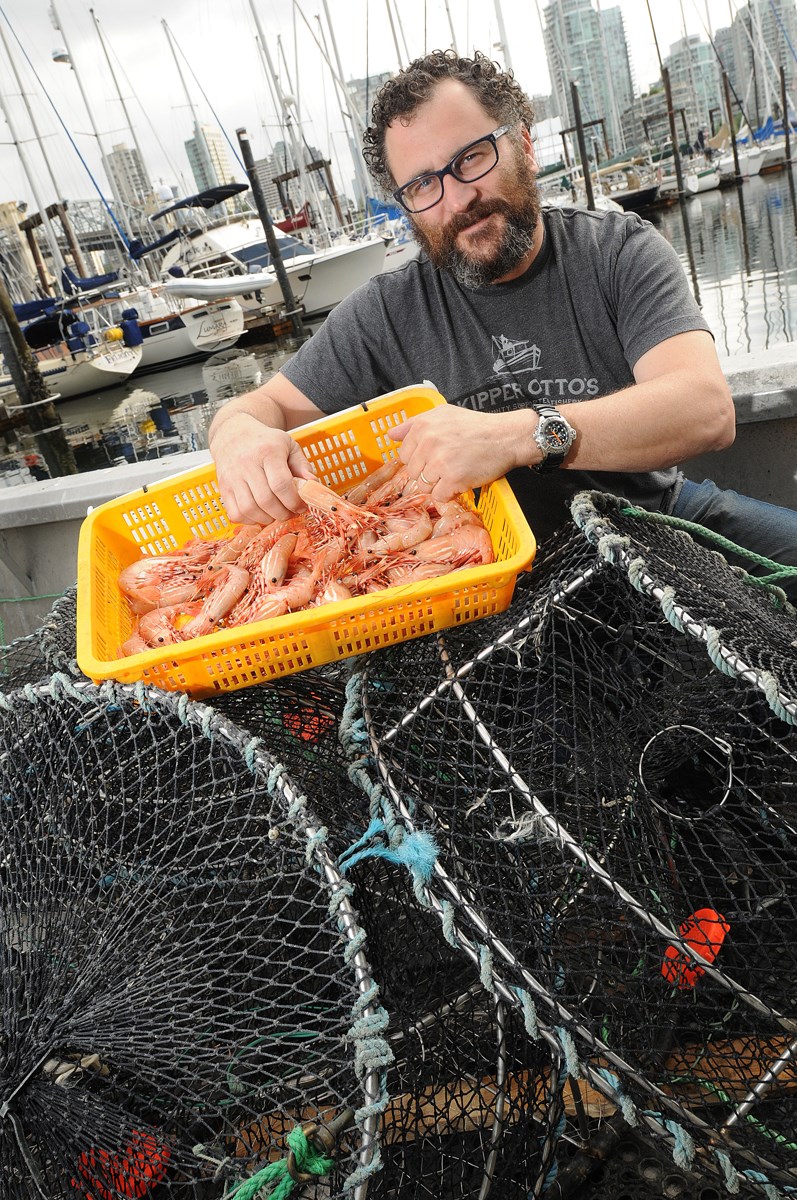Shaun Strobel didn’t so much choose fishing as it chose him. As a child born into a fishing family, he spent weekends out on the boat and worked with his father part-time.
“I started going with him on a part-time basis in 1977, when I was just a boy out of school for the summer,” he said.
Now he’s a fisherman and director of Skipper Otto’s, a community-supported fishery in Vancouver. Last Thursday marked the beginning of Vancouver’s annual spot prawn season and the members of Skipper Otto’s could pick up the return on their investments in the form of pounds and pounds of prawns.
Skipper Otto’s claims to be different from other fisheries because of the role consumers have, Shaun said. Members pay before the catch has even been hauled ashore, buying shares that allow them access to fish for the season.
“Through the community fishery we sell our own fish, my fish, my father’s fish and other independent small-scale fishermen that we’ve known for years and do things the right way,” he said.
The fishery came about as a way to help Otto Strobel, Shaun’s father, break even in the industry, said Sonia Strobel, managing director and co-founder with husband Shaun.
Before they founded the fishery, the two were high school teachers who took part in community-supported agriculture projects that allowed them to buy produce directly from farmers.
“We had the brainwave one day: maybe we could apply what farmers have done to agriculture to fishing,” Sonia said. The fishery started in 2008, and has grown to include 1,400 members.
Members buy credit into the fishery in $100 increments and pay a small membership fee. Once the fish is caught, members order quantities, the price of which is subtracted from their credit.
Sonia said prices are “less or comparable” to what is found in stores.
“Anyone that’s a member can give us an order,” noted Shaun. “We tell them ‘We’re going to have 300 pounds of prawns tomorrow, how many would you like?’”
The model works because customers are funding the fishery and in exchange receive fish.
Sonia said one of the main benefits to belonging to the fishery for consumers is transparency about where their food comes from.
“They know exactly who caught it, how, where and when, and they know exactly who touched that fish between when it came out of the ocean to when it got on their plate.”
Sonia said the fishery has a wide range of members from young professional to families and seniors. What they all have in common, she said, is a desire for better and more ethical food.
“The thing they all have in common is a concern for the environment and a concern for social justice, and that spans demographics.”
Shaun said working as a fisherman has improved since the trend towards local and sustainable food has taken off in Vancouver and elsewhere.
“Now that it’s farmers first, and food producers and fishermen are recognized and important again, it’s good. People line up and want to shake your hand and hear stories of the sea,” he said. “It just feels good to provide food for people.”
@KathleenSaylors



